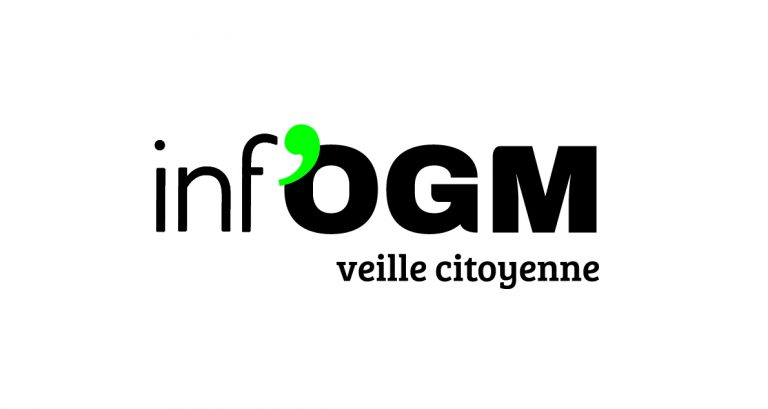News
The biotech industry: political pressure

With a notable acceleration from 2018 onwards, the biotech industry has financed part of the research community to obtain, under the guise of “scientific consensus”, a revision of the regulations applied to GMOs. This work has made it possible to give a blank cheque “according to science” to the European Commission’s recent proposal to deregulate GMOs.
On 5 July this year, the European Commission published a proposal for a regulation designed to exempt a large number of GMOs, including those derived from new genetic modification techniques, from the rules currently applicable to GMOs [1].
This proposal comes almost five years after an important ruling by the Court of Justice of the European Union (CJEU). In 2018, the Court ruled that organisms derived from new genetic modification techniques are GMOs and subject to the obligations of prior risk assessment, labelling, traceability and post-market monitoring [2]. These techniques, the Court explained, have not been “traditionally used for various applications” and their safety has not been proven for a long time. They make it possible to produce GMOs at a much greater speed than was possible with the traditional techniques mainly developed before 2001, the year in which the European directive on GMOs was adopted. What’s more, these organisms can cross borders and reproduce, with irreversible consequences for the environment and human health. The Court’s ruling runs directly counter to the argument put forward by the biotech multinationals. The latter have long been critical of the GMO regulations [3] [4]. They claim that plants derived from new genetic modification techniques could also be obtained by conventional crossing techniques or natural processes and therefore cannot be considered GMOs.
In the wake of the 2018 ruling, a section of the research community, closely linked to the biotech industry, has been working hard, under the guise of “scientific consensus”, to revise the regulations applicable to GMOs.
Scientists criticise judges for not being… scientific
“Disappointing” [5], “absurd” [6], “deprived of scientific basis” and “unaware of scientific advice” [7]. This is how the Court of Justice ruling is described in various statements from public research institutes and centres. The most critical are closely linked to the biotech industry.
This is the case of the very pro-biotech Flemish Institute for Biotechnology (VIB). On its initiative, scientists from around a hundred European research centres are creating the EU-SAGE lobby in 2019 [8]. In an open letter, the scientists in this network state that “there is no scientific reason to consider crops derived from genome editing any differently than conventional varieties with similar alterations” [9]. Clearly, regulating plants derived from new genetic modification techniques as GMOs, subject to risk assessment, would be scientifically unjustified discrimination [10]. Interestingly, 32% of EU-SAGE members are said to have a direct interest in the commercialisation of genetically modified plants, i.e. financial benefits or career development, either personally or through their organisation [11]. This report also states that”approximately 15% (of EU-SAGE members) have been involved in one or more research projects with the seed or biotech industry and 10% have been involved in a seed or biotech company“. This figure does not take into account public research funding linked to industry through ’public-private partnership’ obligations, nor the prospect offered to researchers of exploiting the results of their research by patenting them in their own name or in partnership with their employers.
In Germany, three prominent research institutes have denounced “(t)he general legal classification as a GMO (which) does not take into account the type of genetic modification present in the organism whose genome has been modified or whether this modification could have occurred accidentally or through traditional breeding methods. Nor does it take account of whether the origin of the genetic modification can be identified and attributed to a particular breeding method” [12].
The Court of Justice ruling is therefore criticised for not being “scientific”. This is a worrying criticism, because the judge must be concerned only with whether his arguments and his decision are well-founded in law. If judicial decisions had to be scientific, could we imagine entrusting scientists with the function of judging and stating the law? Wasn’t this the aim of certain nineteenth-century positivists, including the founder of sociology (the science of managing societies)? And how can a legal decision be based on sciences which, by definition, are the product of controversy and only advance by going beyond or disavowing past scientific results more and more rapidly?
The creation of a scientific “consensus”
Be that as it may, the reactions of these scientists to the Court of Justice ruling are a reminder of one indisputable fact: the legislation applicable to GMOs is permeated by science. This characteristic is not unique to GMO law. Most branches of law are becoming increasingly technical. However, the effect of this characteristic is to give the scientific word a predominant weight and value. Science is thus becoming an issue that can be exploited.
Shortly after the Court of Justice ruling, a number of scientific organisations linked to the biotechnology industry recommended that the European Union institutions review the GMO regulations and offered their help in drafting the future text. In an open letter in 2020, the EU-SAGE lobby called on the EU institutions to “revise the GMO Directive to reflect current scientific knowledge and evidence on genome modification techniques” [13]. Other scientific bodies and institutes have made similar recommendations [14]. In line with the position defended by the biotech multinationals, they call for the use of new genetic modification techniques in agriculture to be facilitated. The proliferation of statements issued by various public research bodies creates a false impression of unanimity in the scientific community (see box). The academic organisation EPSO (European Plant Science Organisation), which is listed in the EU’s transparency register and has strong links with the biotech industry, has shamelessly stated that the decision of the Court of Justice of the European Union is contrary to “a broad scientific consensus that the unintentional DNA alterations produced by genome editing are of the same type, but much less frequent, than those produced by older methods” [15]. It is also interesting to note that 64% of the members of the EPSO working group on agricultural technologies have a direct interest in the commercialisation of genetically modified plants [16]. The NGO Corporate Europe Observatory has also revealed that, with the aim of influencing Member States’ political positions, EPSO organised a series of meetings with hand-picked national officials. Only those countries and ministries that had shown an openness to deregulation were invited. At these meetings, various legal options were considered for revising the EU’s GMO rules, as well as ’flagship projects’ for genome-modified crops that could win the hearts and minds of the European public and decision-makers. [17].
The resignation of politics
The counterpart of the preponderant weight of the scientific word is the resignation of politicians, who can then take shelter behind an alleged scientific neutrality. In March 2019, for example, Vytenis Andriukaitis, then Commissioner for Health, stated that “we need a new regulatory framework for these new techniques”. Europe, he insisted, must listen to science [18]. It is hard not to hear the voice of the lobbies behind such a statement, given the many unofficial exchanges that have taken place between the Commission and the proponents of biotechnologies and deregulation [19].
In November 2019, despite the fact that the situation is clear from a legal point of view thanks to the judgment of the Court of Justice of 25 July 2018, the Council asked the European Commission to draw up a study “in the light of the judgment of the Court of Justice in Case C-528/16 concerning the status of new genomic techniques in Union law” [20]. The European Commission’s study, published in April 2021, “concludes that GMO legislation presents clear difficulties of implementation and requires controversial legal interpretation to take account of new techniques and applications. There is every reason to believe that it is not adapted to certain NGTs and their products and that it needs to be adapted to scientific and technological progress ”[“Study on the status of new genomic techniques under Union law and in light of the Court of Justice ruling in Case C-528/16”, European Commission, 29 April 2021]]. As a report commissioned by the German Ministry for Nature Conservation has shown, the Commission’s study is biased in the choice of scientific publications it takes into consideration and presents opinions rather than facts based on science [21]. However, it was on the basis of this study that the European Commission launched a legislative initiative in September 2021, culminating in its proposal for the deregulation of GMOs on 5 July this year. The Commission maintains that this proposal is based on science. Its text is cloaked in a veneer of respectable neutrality, but it does not take account of scientific dissent. If politicians endorse one scientific theory over another, which they can do, this is a political choice, not a scientific one. And it must be qualified as such.
What about the general interest?
The role of science in the GMO debate gives citizens a feeling of illegitimacy and of being unable to understand and take part in the debate. As a result, fundamental questions that deserve public debate are being ignored: what kind of agriculture do we want? Who benefits from public investment in research, most of which is made through public-private partnerships? To the detriment of what, who and in what time frame? Do these decisions promote biodiversity or the privatisation of living things? Do they improve the quality of life for the majority of the population or for a minority? Do they turn farmers into passive consumers of innovation, research and technology, or do they give them the autonomy to determine for themselves what type of crop best suits the characteristics of their land, social demand and their own choices? What effects might the mass introduction of GMOs have on the organisation of living systems (ecosystems) and society (agriculture-food)? Can they absorb them without destabilising themselves?
These are all questions that the European Commission did not see fit to put to Europe’s citizens before proposing to deregulate GMOs. We urgently need to debate them, even if we don’t have a thesis in molecular biology.
Science does not have just one voice
Scientists united within the European Network of Scientists for Social and Environmental Responsibility (ENSSER) [22] are calling for plants derived from new genetic modification techniques to be considered as GMOs and subject to the same regulations. Through various studies, they demonstrate that these techniques do not make it possible to control unintended, unforeseen and potentially dangerous consequences. According to these studies, the risks associated with GMOs derived from new techniques are just as great, if not greater, than those associated with previous GM techniques. Consequently, they conclude, there is a need for a thorough and scientifically independent risk assessment. Recently, an American researcher who developed the genetically modified Calgene tomato in the 1990s argued that the unintended effects of the new techniques must be recognised by researchers, as must the fact that these techniques contain other, as yet unknown, inaccuracies. She calls for caution and no lies of omission [23].
[1] , « La Commission européenne veut en finir avec les OGM », Inf’OGM, 24 July 2023.
[2] , « UE – Pas d’exemption pour les nouvelles mutagénèses », Inf’OGM, 5 September 2018.
[3] , « UE – La directive 2001/18 sous pression », Inf’OGM, 30 December 2021
[4] , « OGM dans l’UE : une directive progressivement allégée », Inf’OGM, 30 December 2021.
[5] “Persbericht: Nieuw rapport neemt het ggo-debat onder de loep”, Koninklijke Vlaamse Academie van België voor Wetenschappen en Kunsten, 10 November 2020.
[6] “Uitspraak Europees Hof van Justitie zet duurzame landbouw in Europa op de helling”, VIB, 31 July 2018.
[7] “Set back for gene editing“, Rothamsted Research, 25 July 2018.
[8] The EU-SAGE network is listed in the EU’s register of interest representatives (lobbies). It describes itself as “representing scientists from 134 European plant science institutes and companies who have joined forces to provide information on genome editing and promote the development of European and EU Member State policies that enable the use of genome editing for sustainable agriculture and food production”. In France, members include the French Academy of Agriculture, the Institut de biologie moléculaire des plantes (CNRS) and the Institut Jean-Pierre Bourgin (under the auspices of INRAE and the Université Paris Saclay). https://www.eu-sage.eu/about
[9] “European scientists urgently reach out to the newly elected European
Parliament and European Commission to enable the potential of
genome editing for sustainable agriculture and food production“, EPSO, 25 July 2019
[10] Oana Dima, Hubert Bocken, René Custers, Pere Puigdomenech, Dirk Inzé, “Genoombewerking voor veredeling van landbouwgewassen”, KVAB, 2020.
[11] “Behind the smokescreen – Vested interests of EU scientists lobbying for GMO deregulation “, The Greens/EFA, September 2022
[12] “Towards a scientifically justified, differentiated regulation of genome edited plants in the EU“, German National Academy of Sciences Leopoldina, German Research Foundation, Union of the German Academies of Sciences and Humanities, 2019.
[13] “Open Statement“, EU-SAGE
[14] Among others: “Towards a scientifically justified, differentiated regulation of genome edited plants in the EU”, German National Academy of Sciences Leopoldina, German Research Foundation Union of the German Academies of Sciences and Humanities, 2019. “On the ECJ Ruling regarding mutagenesis and the Genetically Modified Organisms Directive”, EPSO, 26 July 2018.
[15] “Statement on the ECJ Ruling regarding mutagenesis and the Genetically Modified Organisms Directive”, European Plant Science Organisation, 19 February 2019
[16] “Behind the smokescreen – Vested interests of EU scientists lobbying for GMO deregulation“, The Greens/EFA, September 2022
[17] “Derailing EU rules on new GMOs“, Corporate Europe Observatory, 29 March 2021
[18] S. Michalopoulos, “Andriukaitis: New plant breeding techniques need new regulatory framework”, Euractiv, 27 March 2019
[19] , « UE – La directive 2001/18 sous pression », Inf’OGM, 30 December 2021 and , « Nouveaux OGM : la Commission européenne sous influence ? », Inf’OGM, 28 April 2021.
[20] Decision (EU) 2019/1904 of the Council of 8 November 2019 inviting the Commission to submit a study in the light of the judgment of the Court of Justice in Case C-528/16 concerning the status of new genomic techniques in Union law, and a proposal, if appropriate to take account of the results of the study.
[21] Christof Potthof, Birgit Peuker, Christoph Palme and Anke Schumacher, “Expert Opinion: Evaluation of the European Commission’s study on new genomic techniques”, 27 February 2023.
[23] Belinda Martineau, “We Need the Whole Truth to Regulate GMOs”, Biotechsalon, 15 July 2023.












